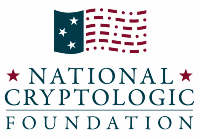The NCMF High School Cybersecurity Curriculum Guidelines (CCG) were created to encourage curriculum providers, teachers, and industry to create curriculum designed to inspire high school students to pursue a profession in cybersecurity, as well as develop thinkers with a cybersecurity mindset that will enhance any profession they pursue.
Seeing the need for a coherent set of guidelines, a team of K-12 educators, post-secondary educators, and cybersecurity experts, now known as Teach Cyber, in partnership with the NCMF, developed these guidelines. Learn more about the CCG.
Teach Cyber has now also created teaching materials for educators interested, excited, and ready to teach high school cybersecurity. The Teach Cyber courseware is creative commons licensed giving educators the rights to adopt, adapt, and disseminate the Teach Cyber course.
Upon the date of this article, this important effort is starting to see significant progress as noted below:
- More than 300 educators across 47 states and U.S. territories have registered for Teach Cyber since it launched in Fall 2020.
- 34 high schools across 13 states are piloting the Teach Cyber in-classroom lessons based on the CCG during the 2020-2021 academic year.
- Between the pilot testers and registered users, it is estimated that Teach Cyber is helping more than ~5,000 students learn cybersecurity this academic year.
Teacher feedback is overwhelmingly positive:
“I am currently guiding fourteen students through the Teach Cyber curriculum. Until we were blessed to participate in Teach Cyber, I used materials from numerous sources. Many sources were not cognitively appropriate for teenage students. All the pieces I was given to use before Teach Cyber didn't fit together very well. Teach Cyber has given my students lessons that builds on their prior knowledge and prepares them to begin a career in Cybersecurity. I recommend Teach Cyber to anyone teaching cybersecurity to high school students.” - Ronda from Canyon High School in New Braunfels, TX
"I currently have 119 students learning cybersecurity using the Teach Cyber curriculum. I am very impressed with the Teach Cyber curriculum and how easy it is to adapt into a cyber course at any level. I am currently using the curriculum for two levels of cybersecurity courses and I love that each unit and lesson is connected, but still independent so I can pick and choose lessons that fit my students' needs. I am also impressed with the quality of the lessons, engagement activities and how easy it is to implement with very little prep. I am so thankful to have an opportunity to pilot this program with my cyber students and I would highly recommend Teach Cyber to new and seasoned cyber instructors." - Katrina, a Riverbend High School teacher in Fredericksburg, VA.
Teach Cyber recently shared via Twitter (@TeachCyber1) that Units 5, 7, and 8 of the Teach Cyber course have been posted. Unit 5 covers countermeasures to cybersecurity attacks, and Unit 7 takes a more in-depth look at threats, vulnerabilities, and attacks. (Units 5 and 7 contain hands-on labs requiring accounts on the U.S. Cyber Range.) Unit 8 shifts gears and looks at the social implications and shifting geopolitics of cybersecurity. This unit contains a lesson (Unit 8 Lesson 1) which could be great for an end-of-semester capstone project. Learn more about the course.
We’ve just begun and look forward to improving the CCG and Teach Cyber lessons for the free benefit of over 24,000 public and over 11,000 private secondary schools.
Stay tuned for more on our progress!
Learn more about our Education Program partnerships, and if you are interested in getting involved, please contact Mark Loepker, NCMF Director of Education, mloepker@cryptologicfoundation.org.
CLICK HERE if you are interested in donating to the NCMF's Education Program.


